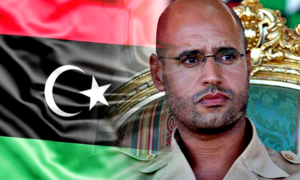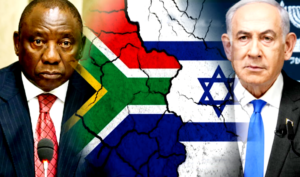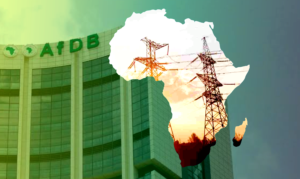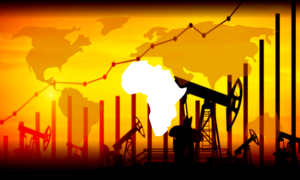New ECOWAS Chairman initiates moves to bring Mali, Burkina Faso, and Niger back to the bloc
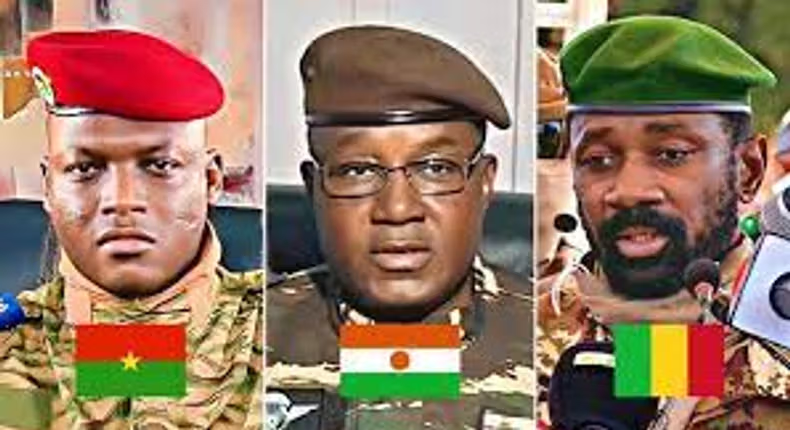
Sierra Leonean President Julius Maada Bio, who assumed the rotating chairmanship of the Economic Community of West African States (ECOWAS) in June, has expressed optimism about reintegrating Mali, Burkina Faso, and Niger into the regional bloc.
- President Julius Maada Bio, Chair of ECOWAS, emphasizes reintegrating Mali, Burkina Faso, and Niger into the bloc.
- Former alliances shifted due to the countries’ withdrawal after military regimes and tensions within ECOWAS.
- While targeted sanctions were imposed earlier, members now focus on reconciliation and regional integration.
In his address during a courtesy visit from Dr. Omar Alieu Touray, President of the ECOWAS Commission, at Sierra Leone’s State House, President Bio stressed the importance of building robust partnerships with the Alliance of Sahel States (AES) nations. He said,
“It is imperative that we build a stronger relationship between ECOWAS and the AES nations and harness this partnership for the advancement of our Community.”
President Bio emphasized that strong relationships among member states are vital for promoting trade, facilitating free movement, and ensuring peace and security in the region.
He also reaffirmed his support for democratic transitions and electoral processes in the subregion, pointing to the ongoing transition in Guinea and the forthcoming elections in Côte d’Ivoire and Guinea-Bissau.
Spotlight on Sahel states’ withdrawal
Recall that the three francophone nations formally withdrew from ECOWAS on January 29, 2025, after forming the Alliance of Sahel States (AES) on July 6, 2024, in Niamey, Niger.
The junta leaders emphasized sovereignty, unity, and resistance to external interference
Their exit followed ECOWAS’ call for a return to constitutional rule in Niger after the 2023 coup that ousted President Mohamed Bazoum. Mali and Burkina Faso, already under military rule, aligned with Niger in rejecting the bloc’s demands, reportedly due to perceived Western influence in the region.
Particularly, Mali has been under junta rule since the 2020 coup that removed President Ibrahim Boubacar Keïta, while Burkina Faso experienced two coups in 2022 that ousted President Roch Marc Christian Kaboré. These developments have heightened threats from terrorism, illicit arms flows, and economic instability across the region.
In response, ECOWAS, under then-Chairman Bola Tinubu of Nigeria, imposed targeted sanctions on the junta, including travel bans, asset freezes on junta members and their families, suspension of financial transactions, and closure of borders.
While these measures were intended to pressure the junta to restore constitutional order, they also strained relations with the bloc. Most sanctions were lifted in March 2024 to alleviate humanitarian concerns, though targeted measures against coup leaders remained.
Prominent ECOWAS members continue to advocate reconciliation. Hon. Veronica Seecay, Chairperson of the Committee on Social Affairs, Gender, Women in Parliament, and Persons with Disabilities, urged the countries to set aside differences and return to the fold for the benefit of regional integration and citizens’ welfare.
“We need you people, Burkina Faso, Niger, Mali. We are a bloc. We should be working together,” she said.
At the AES summit, junta leaders emphasized sovereignty, unity, and resistance to external interference. Niger’s General Abdourahamane Tiani said:
“The Alliance of Sahel States is a platform for our countries to assert our sovereignty, pursue collective security, and promote development. Through this confederation, we reaffirm our commitment to strengthen ties and regional stability.”
Burkina Faso’s Captain Ibrahim Traoré added:
“The Alliance of Sahel States is a significant step toward greater integration among our nations. It reflects our people’s desire for freedom, unity, and independence, and we must collectively resist external interference.”
During the 67th Ordinary Session of ECOWAS, President Bio acknowledged the complexities facing West Africa, including terrorism, illicit arms flows, political instability, and transnational crime, particularly in the Sahel and coastal states.
He however highlighted the need for accountability, transparency, and equitable participation in national life.
“ECOWAS must reform itself to become more transparent, efficient, and responsive to the needs of its people. This is how we will rebuild trust in regional cooperation.”
As AES members increasingly engage with Beijing and Moscow, ECOWAS faces the challenge of reconciling its commitment to democratic governance with the realities of regional instability.
The departure of Mali, Burkina Faso, and Niger marks a significant shift in West African geopolitics, leaving the future of regional cooperation uncertain. However, their potential re-admission could stand as a landmark achievement for the new chairman.


